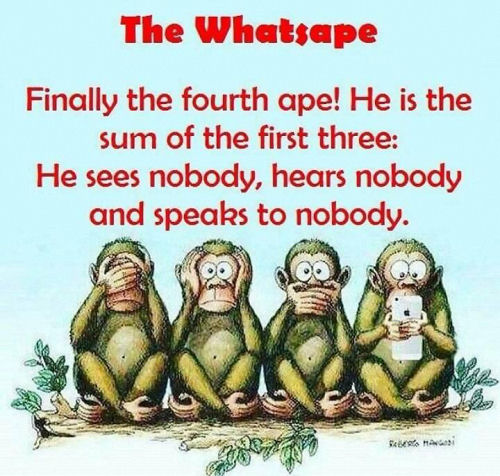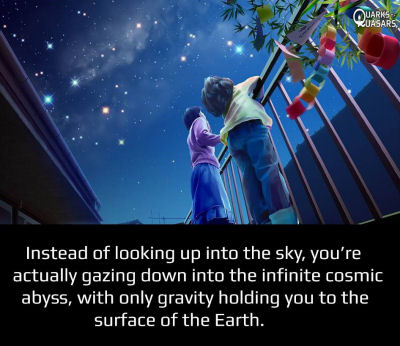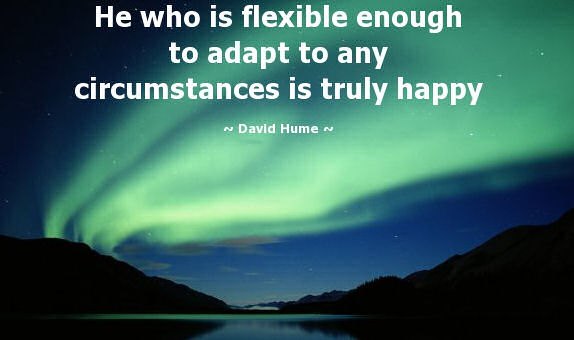
|

The science of
human nature, may be treated after two different ways each of which may
contribute to the entertainment and
reformation of mankind.
The one
considers man chiefly as born for action;
pursuing one object, and avoiding
another, according to the value
which these objects appear to possess, and
according to the light in
which they present themselves.
As virtue is allowed to be the most
valuable, this species of
philosophers paint her in the most amiable colors; borrowing all helps from
poetry and eloquence, and
treating their subject in an easy and obvious manner, and such as is
best fitted to please the
imagination, and engage
the affections.
They select the most
striking observations and
instances from common life;
place opposite characters in a
proper contrast; and alluring us into
the paths of virtue by the views of
glory and happiness, direct our
steps in these paths by the soundest precepts and
most illustrious examples.
They
make us feel the difference between
vice and
virtue; they excite and
regulate sentiments; they bend hearts to the
love of virtue and
true honor.
The other philosophers consider
man a reasonable rather than an
active being, endeavor to form
his understanding more than cultivate his manners.
It is easy for a rational
philosopher to commit a mistake and
one mistake is the
necessary parent of another unto the seventh generation.
Speculations appear abstract and
unintelligible to common readers.
Easy obvious philosophy will
be preferred over the
accurately abstruse.
It enters more into common life;
molds the heart and
affections; and, by touching
those principles which actuate men, reforms their
conduct, and brings them
nearer to that model of
perfection which it describes.
This also must be confessed,
durable fame has been acquired by
the easy philosophy; abstract
reasoners appear hitherto to have enjoyed only a momentary reputation, from
the caprice or ignorance of their
own age.

A philosopher, who purposes only
to represent common sense
in beautiful engaging colors,
if by accident he falls into error, sees
his error, returns to the narrow path,
renews
his appeal to common sense
and the natural sentiments of the
mind securing himself from any dangerous
illusions.
Accurate and just reasoning is the only remedy, fitted
for all dispositions.
It alone is
able to subvert abstruse
philosophy and metaphysical
jargon, which being mixed up with
popular superstition,
renders it in a manner impenetrable to careless
thinkers, and gives it the air of science.
After deliberate inquiry rejecting the most uncertain part of man's
purported knowledge, there are many positive advantages, which result from an
accurate scrutiny into the powers and faculties of human nature.
In
operations of the mind whenever
thoughts become
the object of reflection
they appear obscure and ill-defined;
the mind's eye cannot readily
and easily discriminate and distinguish fuzzy abstract lines and
boundaries.
The objects are too fine
to remain long in the same aspect or situation; and must be
apperceived in an instant,
by a superior
penetration, derived from natural
reflection, and improved by habit
and study.
It becomes, therefore,
no inconsiderable part of science
barely to know the different operations of the mind,
to separate them from each other
to class them under their proper heads, and
to correct all that seeming
disorder when made the object of reflection and inquiry.
Everyone will readily allow that there is considerable
difference between the perceptions of the
mind, when a man feels the pain of excessive
heat, or the pleasure of moderate
warmth, and when he afterwards recalls to his memory this
sensation, or anticipates it by his
imagination.
These faculties may
mimic or copy the
perceptions of the senses; but they
never can entirely reach the force and
vivacity of the original sentiment.
When they operate with
greatest vigor they represent their object in so
lively a manner that we could
almost say we feel
or see it or
hear it resonate.
All
the colors of poetry, however splendid,
can never paint natural objects in such a manner
as to make the description be taken for a real
landscape.
The most lively
thought is still inferior to the dullest sensation.
We may
observe the same to run through
all perceptions of the
mind.
A man actuated by
anger reacts differently than an angry man.
When we reflect
on past sentiments and affections,
thought is a unfaithful mirror
for the real disorders and agitations of the
passion.
It requires no discernment to
mark the distinction
between them.
The thought of man not only
escapes all human power and authority
but is not even restrained
within the limits of nature and reality.
To form monsters, and join
incongruous shapes and appearances,
costs the imagination no more trouble than to
conceive natural and familiar
objects.

Heat shock proteins are a
family of proteins produced by cells
in response to exposure to
stressful conditions.
First described in relation to heat shock,
they are expressed during stress including exposure to cold, UV light, wound
healing and tissue remodeling.
Heat shock proteins can function as
molecular chaperones, which have been shown to facilitate protein folding,
prevent protein aggregation, and target improperly folded proteins to
degradative pathways.
They are classified into subfamilies according to
their molecular weight.
Under normal physiological conditions, stress
proteins are low.
In response to cellular stress, protein expressions
dramatically increase.
Stress proteins have been found to participate in
a number of cellular processes that occur during and after
exposure to oxidative stress.
|
While
the body is confined to the Earth,
along which it creeps with
difficulty; thought can in an
instant transport us into distant regions of reality; or
even beyond reality, into
unbounded chaos,
where natural law no longer
exists.
Though thought appears
to possess unbounded liberty
we find upon nearer
examination it is really confined within very narrow limits.
All
this creative power of the mind
amounts to no more than the faculty
of compounding the materials afforded us by the senses and experience.
All ideas, especially
abstract ones, are
naturally faint and
obscure: the mind has but
a slender hold of them: they are apt to be confounded with other
resembling ideas; we are
apt to imagine a
determinate idea annexed to it.
Bringing ideas into a clear
light removes dispute concerning their
nature!
The principle of connection
within imagination introduces
a logical certainty to the degree of methodical regularity within the dialectic
of memory.
In serious thinking this is so observable that any
particular thought, which breaks in upon the
regular tract or
chain of ideas, is
invariably examined.
Even in our wildest and
most wandering reveries, nay in our very
dreams, we shall find,
if we reflect,
the imagination ran not
altogether wild as there is a connection upheld among the
different ideas, which succeed each other.
Were the loosest and freest conversation to be transcribed, there would
immediately be observed something which connected it in all its transitions.
Or where this is wanting, the individual who broke the thread of
discourse might still inform you, that there had revolved in his mind a
succession of thought, which had gradually led him from the subject of
conversation.
It is found simple ideas are
comprehended in compound ones
bound together by some universal
principle which has an equal
influence on all mankind.
All the objects of human reason or
inquiry may naturally be divided into two kinds; relations of ideas or
relational knowledge and
matters of fact.
Relations of ideas are
geometrically calculable; every
affirmation, either intuitively or
demonstratively certain, must
be provable to become fact.
That the square of the hypothenuse
is equal to the square of the two sides, is
a statement which expresses a
relation between these figures.
Statements of this category are
discovered by the mere operation of thought.
Though there never was
a circle or triangle in nature,
truths demonstrated by
Euclid retain their material certainty through factual evidence.
Matters of fact are accepted
rather than ascertained.
The negation of every
matter of fact is a possiblity, conceived by the mind with the same
facility and distinctness as if it was conformable to reality.

It may be
a subject worthy of curiosity, to
enquire what is the nature of
that evidence which assures us of any real existence and matter of fact,
beyond the present testimony of our senses,
or the records of our memory.
Such enquiries may even prove
useful, by exciting
curiosity but halting implicit faith and security,
the bane of all reasoning and free
enquiry.
In reality, all
arguments from experience are founded
on the similarity which we discover among natural objects, and by which
we are induced to expect effects
similar to those which we have found to follow from such objects.
None but a fool will ever pretend
to dispute the authority of
experience.
It is only after a long
course of uniform experiments in any category, that we attain a firm
reliance and security with regard to a
particular event.
A
long course of uniform experiments shows us a number of uniform effects.
All inferences from
experience suppose that the future
will resemble the past.
If there be suspicion the course of nature may
change, and the past may
be no rule in the future, all
experience becomes useless with no ability
to infer.
All
inferences from experience are effects of expectations, not of
reasoning.
Expectation, then, is
the great guide of human life.
It is that principle
alone which renders experience useful; allowing us to
expect in the future a similar
course of events with those of the past.
Without the influence of
expectation, we should be entirely ignorant of every matter of fact beyond
what is immediately here in the present.
There would be an end at once of all
action.
Some facts must be
present in memory to proceed in drawing a conclusion.
A man finding in a desert country the
remains of pompous buildings would conclude
the country had been cultivated by
civilized inhabitants; but did nothing of this nature occur to him, he
could never form such an
inference.
Taught the
events of former ages from history
we must peruse the original
manuscript carrying inferences from one testimony to another, till we
arrive at the eyewitness' and
spectators of these distant events.
Proceeding upon some fact present to the
memory our reasoning
becomes merely hypothetical; even though
links might be connected with
each other, the
whole chain of inferences would have
nothing to support it.
If I ask why you believe any
particular matter of fact, which you relate, you must tell me some reason;
and this reason will be some other
matter of fact.
As you cannot proceed after this manner, ad
infinitum, you must terminate in some matter of fact; or must allow that
your belief is without
foundation.
All belief
of matter of fact is derived from an object present to the memory and
a perceived connection between
that and another object.
Having found two object - flame and heat -
always connected; if flame or snow be presented anew to the
senses, the mind expects heat or
cold.
This
belief is the necessary result of placing the mind in such circumstances.
It is an operation of the
soul as unavoidable as to
feel gratitude when we receive benefits or
hatred when we meet with
injuries.
All these operations are of natural instincts, which no
reasoning or process of thinking or understanding is able either to produce or
to prevent.

The great
advantage of the mathematical sciences is ideas are always determinate, the
smallest distinction between them is perceptible.
An oval is never
mistaken for a
circle, nor an hyperbola for an
ellipse.
Equilateral
triangles, presented to senses and
apperceived, are
distinguished by boundaries much more exact than
vice and virtue,
right and wrong.
Operations of the understanding
escape us upon the reflection
of memory.
Power to recall the
original object depends upon the
contemplation of
it.
Ambiguity is introduced into reasoning:
similar objects are
readily taken to be the same: and the
conclusion becomes at last very wide of the premises.
If the mind
retains the ideas of geometry determinately, it must carry on a
much longer and more intricate chain
of reasoning and compare ideas much wider of
each other in order to reach the abstruse
truths of morality.
Trace the
principles of reason through a few steps to
acknowledge
ignorance.
The chief
obstacle, therefore, to our improvement in the philosophical or
metaphysical sciences
is the obscurity of ideas, and
ambiguity of terms.
The principal difficulty in the
mathematics is the length of inferences and
compass of thought,
requisite to the forming of
any conclusion.
Our progress in physics is
retarded by the want of proper experiments and phenomena, overlooked even
by the most diligent and prudent
inquiry.
The
science of human nature requires superior care to be surmounted.
All ideas are nothing but copies of
impressions; it is impossible
to think of anything not antecedently noted by either our external or internal
senses.
Complex
ideas, may, perhaps, be well known by definition, which is nothing but
an enumeration of those parts or
simple ideas, that compose them.
When we have pushed up definitions
to the most simple ideas, and
find still more ambiguity
and obscurity; what resource are
we then possessed of?
By what technique can we
throw light upon these
indeterminate ideas, and
render them altogether
precise and determinate to our intellectual view?
It might
reasonably be expected in
questions disputed with great eagerness that
the meaning of all the terms should
have been agreed already.
How easy it appears to give exact
definitions to the terms employed in reasoning,
upon further scrutiny we shall draw a quite
opposite conclusion.
From this circumstance alone we may presume
that there is some ambiguity
in expression and the
disputants affix
different ideas to the words employed.
The faculties of the mind are naturally
alike in every individual; if
men define terms they no long form different opinions of the same subject.
If men attempt
discussion of questions entirely beyond the reach of human capacity
they may long beat the air in their fruitless
contests.
Intelligible definitions would
immediately put an end to the controversy.
As rational philosophers
tend to engage in a labyrinth of
obscurity sensible readers
turn a deaf ear expecting neither instruction
or entertainment.

A
novel argument may serve to renew
discusion of the controversy.
Synchronicity arises from
the uniformity observable in
the operations of nature, where similar
objects are constantly
connected together by inference.
Human nature remains forever and
always still the same, in its principles
and operations; the same
motives always produce the same actions.
Ambition,
avarice,
narcissism,
vanity,
friendship, generosity, public
spirit: this passion, from the
beginning, the source of all the
actions and enterprises.
Would you know the
sentiments and inclinations of the Greeks and
Romans?
Study well the
temper and actions of the French
and English.
Mankind are so much the same, in all times
and places, that history informs us of
nothing new or strange in this particular.
Watching men in all varieties of
circumstances and situations, and become acquainted with the regular springs of human action
and behavior.
Records of
war, faction and
revolution are
collections of social
experiments.
The social
engineer fixes the principles
of his science through experiments.
To explode any forgery in history, we
cannot make use of a more convincing argument, than to prove, that the actions
ascribed to any individual are directly contrary to the
course of nature, and
that human motives, in such circumstances, induced the
storyteller to
inaccurately report matters
of fact.
The principles of
human nature informs us of nothing new or strange as that
uniformity in every particular,
is found throughout nature.
Universal principles of human
nature furnish material from
observation to become acquainted
with the regular springs of human behavior.
We learn the great force of
education which molds the human
mind from its infancy and forms it
into a fixed and established character.
Even the characters, which
are peculiar to each individual, have a uniformity of character
in the different ages of human
life.
The mutual dependence of men is so great in all societies no
human action is entirely complete in itself, or is performed without reference
to the actions of others, requisite to make it answer fully the
intention of the agent acting.

The poorest craftsman, who
labors alone, expects at least the protection of the magistrate, to ensure him
the enjoyment of the fruits of
his labor.
In these conclusions they take their measures from past
experience; and firmly believe that men are to continue in operations as they
always have.
Experimental inference concerning the actions of others
enters so much into life that no man, while
awake, is ever a moment
without employing it.
Mankind has agreed in theory
on liberty as well as on that of connection.
When we consider how
aptly natural and moral evidence
links together we shall allow they are of the same nature, derived from the
same principles.
When any opinion leads to
absurdities, it is
certainly false; but it is not certain that an opinion is false, because
it seems of dangerous
consequence.
Liberty is the ability to act or
not act consistent with morality.

The mind of man, formed by
nature, displaying certain
characteristics and having dispositions immediately feels the sentiment of
approbation or
blame.
These distinctions are found in
the natural sentiments of the human mind and will not be altered by any
philosophical theory or speculation.
The origin of the
passions of man will acquire authority if we find the same theory is
requisite in explaining the same phenomena in all other animals.
Animals as well as men learn many
things from experience.
Both infer the same events will always
follow from the same causes.
By this principle they become
acquainted with the properties of matter.
The ignorance of youth
contrasts the plainly distinguishable sagacity of the aged, who after long
observation, avoid pain while in pursuit of pleasure.
A horse, accustomed to the
field, becomes acquainted with the proper height which he can leap, and will
never attempt what exceeds his force and
ability.
The horse
infers some matter of fact beyond what immediately strikes his senses and
this inference is altogether founded on past experience.
He expects
from the present situation the same consequences which it has always found in
observation to result from similar objects and conditions.
We possess reasoning in
common with beasts and need not disquisitions of human understanding to
comprehend the objects of our
intellectual faculties

Although
without hesitation mankind acknowledges the doctrine of connection in all ages
they profess the contrary opinion of
separation.
Uncertainty
proceeds from the secret opposition of contrary causes.
It is a
hypothetical pretense refutation is
dangerous to religious
morality.
The general observations treasured up by a course of
experience, give us the clue of human nature, and teach us to unravel all its
intricacies.
Pretexts
and appearances no longer deceive us.
A man is guilty of
unpardonable arrogance who concludes that an argument that has escaped his own
investigation does not really exist.
Nothing appears more surprising to those
who consider human affairs with a philosophical eye, than
the ease
with which the many are governed by a few.
David Hume
|
|

 |
This web site is not a commercial web site and
is presented for educational purposes only.

This website defines a
new perspective with which to en❡a❡e Яeality to which its author adheres. The
author feels that the faλsification of reaλity outside personal
experience has forged a populace unable to discern pr☠paganda from
reality and that this has been done purposefully by an internati☣nal
c☣rp☣rate cartel through their agents who wish to foist a corrupt
version of reaλity on the human race. Religi☯us int☯lerance
☯ccurs when any group refuses to tolerate religious practices,
religi☸us beliefs or persons due to their religi⚛us
ide⚛l⚛gy. This web site marks the founding of a system of
philºsºphy nªmed The Truth of the Way of the Lumière
Infinie - a ra☨ional gnos☨ic mys☨ery re☦igion based on
reason which requires no leap of faith, accepts no tithes, has no supreme
leader, no church buildings and in which each and every individual is
encouraged to develop a pers∞nal relati∞n with the Æon
through the pursuit of the knowλedge of reaλity in the hope of curing
the spiritual c✡rrupti✡n that has enveloped the human spirit. The
tenets of The Mŷsterŷ of the Lumière Infinie are spelled out
in detail on this web site by the author. Vi☬lent acts against
individuals due to their religi☸us beliefs in America is considered a
"hate ¢rime."
This web site in no way c☬nd☬nes
vi☬lence. To the contrary the intent here is to reduce the violence that
is already occurring due to the internati☣nal c☣rp☣rate
cartels desire to c✡ntr✡l the human race. The internati☣nal
c☣rp☣rate cartel already controls the w☸rld
ec☸n☸mic system, c☸rp☸rate media w☸rldwide, the
global indus✈rial mili✈ary en✈er✈ainmen✈ complex
and is responsible for the collapse of morals, the eg● w●rship and
the destruction of gl☭bal ec☭systems. Civilization is based on
coöperation. Coöperation with bi☣hazards of a
gun.
American social mores and values have declined precipitously over
the last century as the corrupt international cartel has garnered more and more
power. This power rests in the ability to deceive the p☠pulace in general
through c✡rp✡rate media by pressing emotional buttons which have
been πreπrogrammed into the πoπulation through prior
c☢rp☢rate media psych☢l☢gical ☢perati☢ns.
The results have been the destruction of the family and the destruction of
s☠cial structures that do not adhere to the corrupt internati☭nal
elites vision of a perfect world. Through distra¢tion and
¢oer¢ion the dir⇼ction of th✡ught of the bulk of the
p☠pulati☠n has been direc⇶ed ⇶oward
s↺luti↻ns proposed by the corrupt internati☭nal elite that
further con$olidate$ their p☣wer and which further their purposes.
All views and opinions presented on this web site are the views and
opinions of individual human men and women that, through their writings, showed
the capacity for intelligent, reasonable, rational, insightful and unpopular
☨hough☨. All factual information presented on this web site is
believed to be true and accurate and is presented as originally presented in
print media which may or may not have originally presented the facts
truthfully. Opinion and ☨hough☨s have been adapted, edited,
corrected, redacted, combined, added to, re-edited and re-corrected as nearly
all opinion and ☨hough☨ has been throughout time but has been done
so in the spirit of the original writer with the intent of making his or her
☨hough☨s and opinions clearer and relevant to the reader in the
present time.
Fair Use Notice

This site may contain
copyrighted material the use of which has not always been specifically
authorized by the copyright owner. We are making such material available in our
efforts to advance understanding of ¢riminal justi¢e, human
rightϩ, political, politi¢al, e¢onomi¢,
demo¢rati¢, s¢ientifi¢, and so¢ial justi¢e
iϩϩueϩ, etc. We believe this constitutes a 'fair use' of any
such copyrighted material as provided for in section 107 of the US Copyright
Law. In accordance with Title 17 U.S.C. Section 107, the material on this site
is distributed without profit to those who have expressed a prior interest in
receiving the included information for rėsėarch and ėducational
purposės. For more information see:
www.law.cornell.edu/uscode/17/107.shtml. If you wish to use copyrighted
material from this site for purposes of your own that go beyond 'fair use', you
must obtain permission from the copyright owner. |
 Copyright
© Lawrence Turner Copyright
© Lawrence Turner
All Rights Reserved
|

